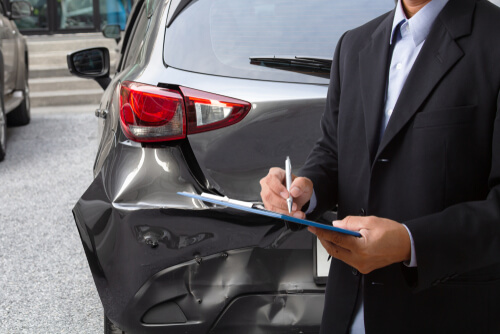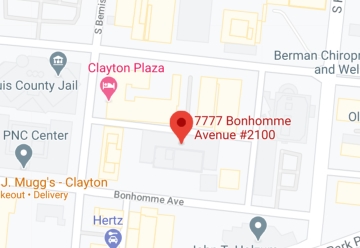
All Missouri drivers are required to carry car insurance, which can help pay for expenses and losses when an accident occurs. It is important that you understand your car insurance coverage and have a general idea of how car insurance works in the event of an accident. If you have questions about insurance coverage after being injured in a crash, please feel free to call Sumner Law Group, LLC, for a free consultation.
Missouri Vehicle Insurance Requirements
Missouri law requires all owners and drivers of motor vehicles to have motor vehicle liability insurance coverage. Owners are required to show proof of insurance when registering their vehicle. Policies must provide certain minimum coverages, including:
- $25,000 per person/$50,000 per accident in bodily injury liability coverage
- $10,000 per accident in property damage liability coverage
- $25,000 per person/$50,000 per accident in uninsured motorist coverage for bodily injury
Of course, drivers may purchase higher insurance limits and additional coverage. Nonresidents driving through Missouri are only required to maintain insurance coverage that complies with the laws of their state of residence.
Drivers are required to keep proof of insurance in their vehicle. Drivers may be ticketed by a police officer if they cannot show proof of insurance. Your driver’s license may also be suspended if you fail to provide proof of active insurance coverage on the vehicle.
What Does Auto Insurance Cover in Missouri?
In Missouri, car insurance covers specific cars named in the policy along with drivers of those vehicles, including the named policyholder, the spouse and other family members residing with the policyholder, and any other person who has permission to drive a vehicle named in the policy. To lower premium amounts, car insurance policyholders can specifically exclude individuals from coverage, such as family members who reside with the policyholder.
How Does Car Insurance Work in an Accident?
Car insurance can protect you in several ways in the event you are involved in an accident. First, car insurance can protect you from financial liability if someone else is injured or if the property is damaged in a collision that is your fault. Compensation from your insurance policy is usually sought if someone else is hurt in the accident or if you damaged someone else’s vehicle. If the other party tries to directly file a legal claim against you, you can submit the claim to your insurance company to handle the legal defense and pay any sums that you may be liable for.
If you have collision or comprehensive coverage on your car insurance policy, you can also file a claim with your insurance company for the damage to your vehicle. If your vehicle is repairable, the insurance company will pay the repair costs (minus your deductible). If your vehicle cannot be repaired or if the repair costs exceed the difference in the value of your vehicle that the accident caused, the insurance company will pay you the value of your vehicle and declare the car totaled.
If you purchase MedPay coverage as part of your insurance policy, your car insurance may help you pay for medical expenses you incur due to any injuries you suffered in a car accident.
How Does MedPay Work?
MedPay is an additional, optional coverage you can purchase for your car insurance policy. A MedPay policy will provide between $1,000 and $10,000 (depending on the policy limit you select) in coverage for eligible medical expenses you incur from a car accident. MedPay takes effect regardless of who may have been at fault for the accident.
If you have health insurance, MedPay will cover eligible expenses not covered by your health insurance, such as copays, deductibles, and out-of-pocket purchases. If you do not have health insurance, MedPay can serve as the primary insurance for your healthcare costs following a car accident.
Because MedPay is considered “no-fault” coverage, claims you make under MedPay coverage are usually promptly paid, even if your larger car insurance claim is still being investigated or processed. MedPay also has no deductible, meaning you are paid the full amount of covered expenses. Finally, if you successfully receive compensation from another party at fault for the car accident, the insurance company does not recoup the payments it made to you under MedPay coverage.
How Does a Car Insurance Deductible Work?
A car insurance deductible refers to the amount of money you have to pay toward repairs of your vehicle after an accident. After the deductible is paid, insurance will begin to cover repair expenses under collision or comprehensive coverage, if you have purchased that coverage for your car insurance policy.
For example, suppose you have a $500 deductible under your collision or comprehensive coverage, and you get into an accident that results in $5,000 of damage to your car. You must cover the first $500 in repair costs before your insurance company will cover the remaining $4,500.
You select your deductible when you purchase your policy. The higher the deductible you choose, the lower your premium. However, you should only select a deductible that you can afford to pay out-of-pocket since you will have to pay the deductible before the insurance company will contribute toward the balance of your repair bills.
Hurt in a Crash? Let Us Deal with the Insurance Company for You
If you have been injured in a motor vehicle crash, you may be entitled to compensation from the at-fault driver’s insurance policy. However, dealing with insurance companies can be frustrating. Insurance adjusters and defense attorneys are experts at minimizing the value of claims. That’s why you need a skilled St. Louis car accident lawyer on your side from the beginning.
Let the car accident attorneys of Sumner Law Group, LLC, fight for the fair compensation you deserve while you focus on rest and recovery. Contact us now for a free consultation.

















